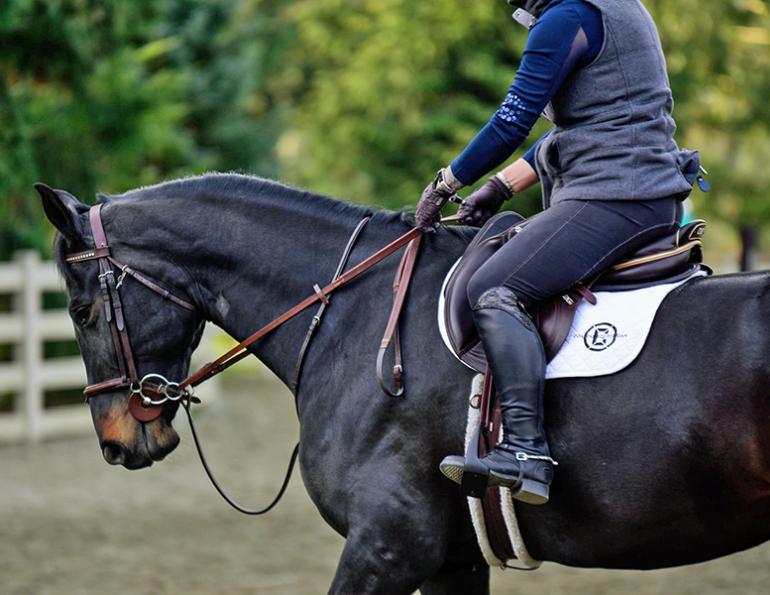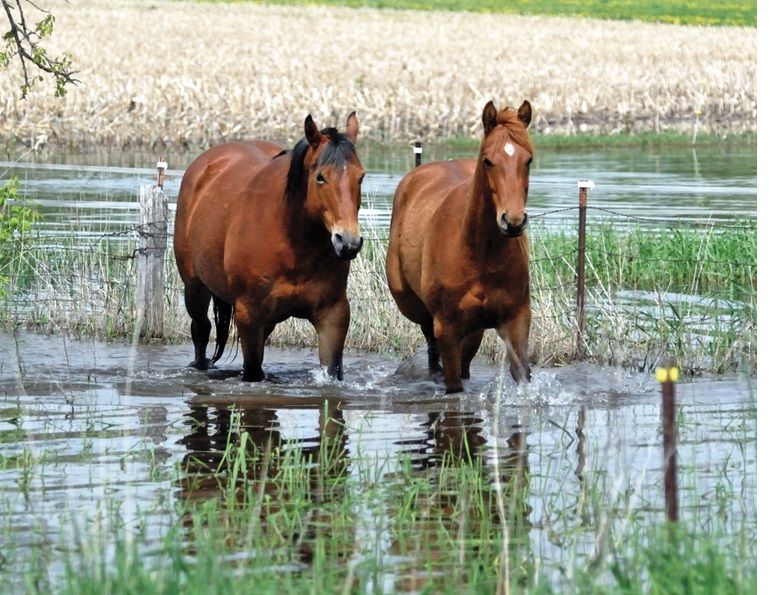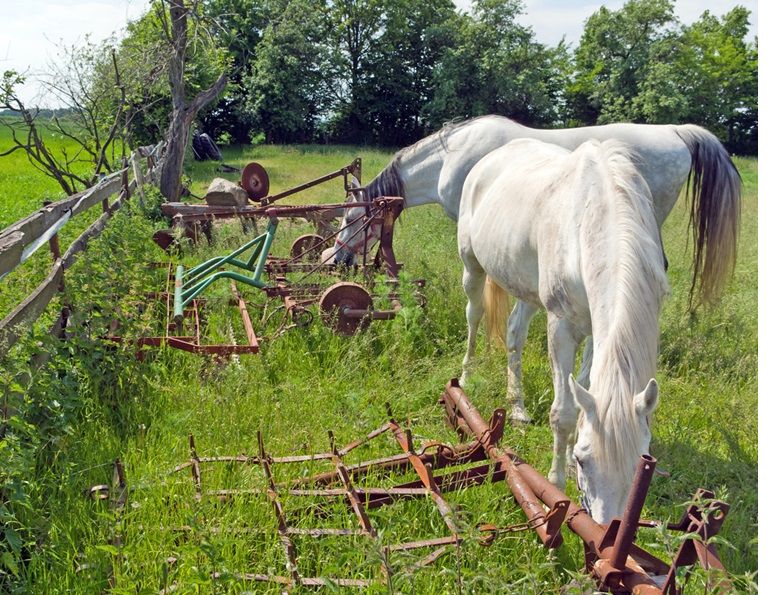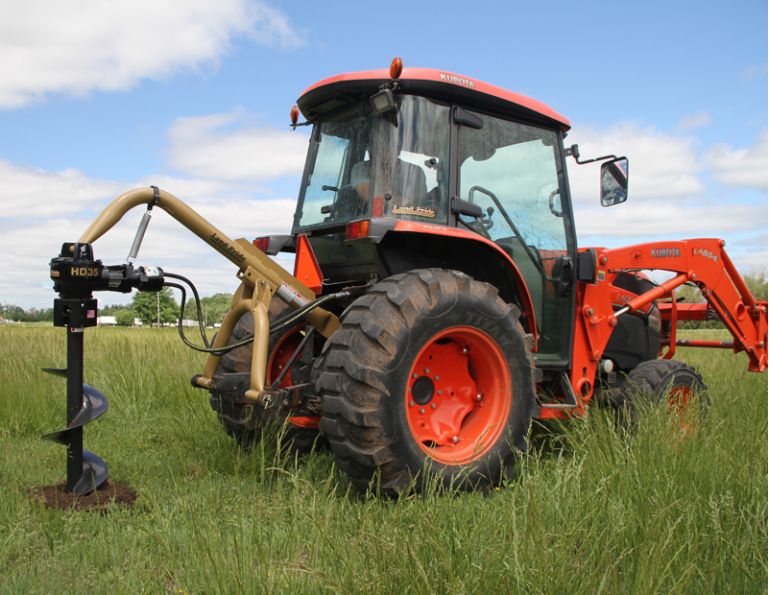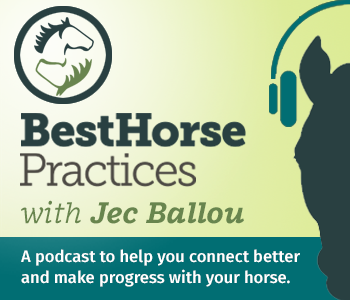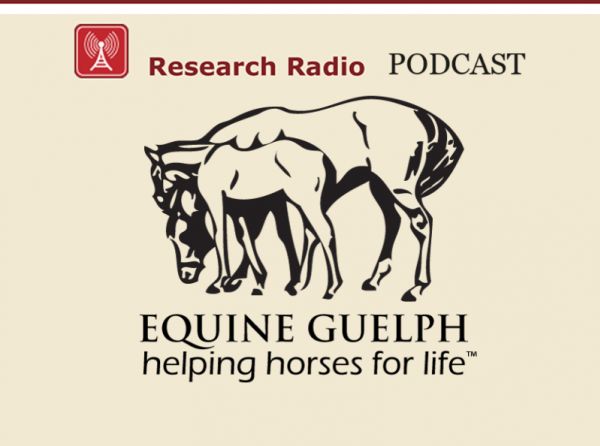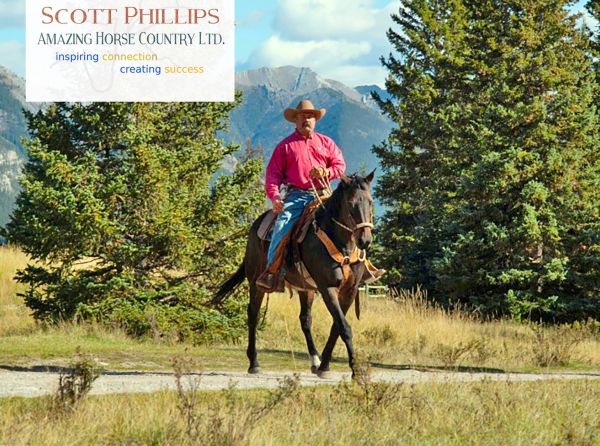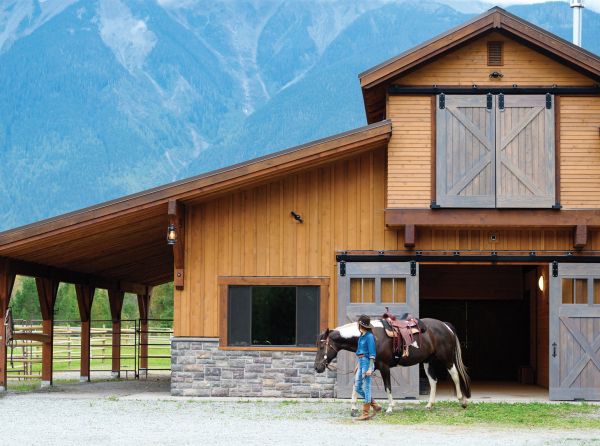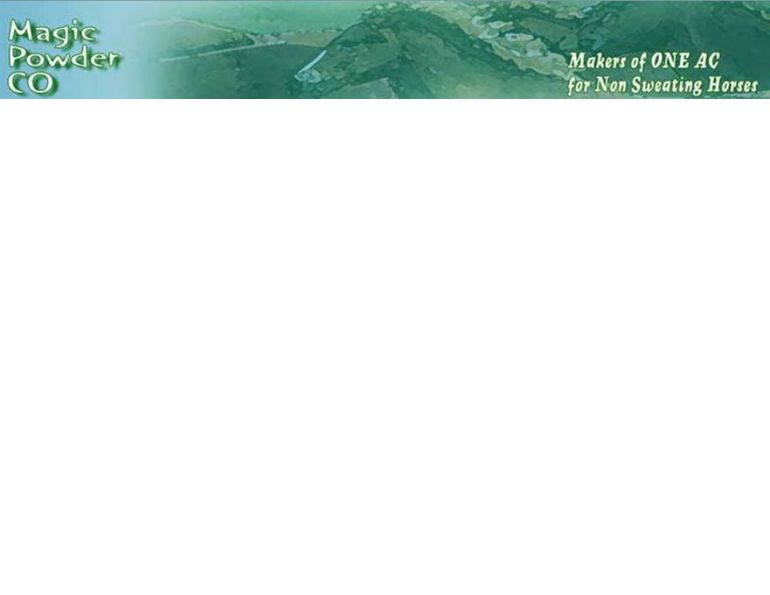By Karen L. Weslowski, Lawyer, Miller Thomson LLP, Vancouver, BC
In recent years, many parts of Canada have been devastated by natural disasters, including forest fires, ice storms, and floods. These disasters have impacted the equine community by causing loss and damage to barns, fencing, pastures, feed supplies and livestock, among other things. Aside from the direct loss of property, there may also be consequential losses, such as loss of business income, resulting from the property loss. Insurance coverage may be available to respond to these losses but it must be secured in advance of the natural disaster. As such, it is helpful to know the types of insurance coverage available to ensure that you are well-protected against risks.

Policies generally exclude flood-related damage unless it is caused by home appliances, pipes, or damaged plumbing. Photo: iStock/Steverts
Types of Natural Disasters
The insurance coverage available for natural disasters can vary. Not all natural disasters are treated the same way by insurance. Flooding is a good example, as not all sources of flooding are covered by insurance. Floods can result from heavy rainfall, overflowing lakes and rivers, sinkholes or plumbing failures. Insurance policies generally exclude flood-related damage, except for that caused by damaged plumbing, pipes or home appliances.
Other types of natural disasters for which insurance coverage may be sought include mudslides, hurricanes, tornadoes, forest fires, and earthquakes. If you live in an area prone to a particular type of natural disaster, it is likely that coverage for those events will be excluded from your insurance coverage, although that coverage may be available for purchase at an additional premium.
Types of Insurance Coverage Available to Response to Natural Disasters
Those in the equine community may have several types of insurance coverage available to respond to a natural disaster.

If the area you live in is prone to tornadoes, it is unlikely that coverage for this type of natural disaster will be included in your policy, but it may be available for purchase at an additional premium. Photo: Dreamstime/Dan Ross
Homeowners’ Insurance Policy – Typically, the first policy to respond to a natural disaster would be a homeowners’ insurance policy.
Natural disasters or so-called “acts of God” are not automatically excluded from homeowners’ insurance coverage. The coverage available depends upon the particulars terms of your policy and often upon your geographic location.
The “Named Perils” or “All Risk” section of the policy will list the events covered by the policy, and usually include fire, lightening, windstorm, hail, explosion, smoke, ice or snow, and freezing of/or water escape from sprinklers, appliances, plumbing, air conditioning or heating systems. These listed perils could cover some natural disasters.
Related: How to Understand Horse-Related Contracts
The homeowners’ insurance policy will have a section specifically listing the exclusions from coverage. These exclusions often include earthquakes, sinkholes, landslides, hurricanes, flooding, some types of water damage, sump-pump back up, and nuclear war. If you live in an area that is prone to forest fires, flooding or earthquakes, it is quite likely that specific peril (or perils) will be excluded from coverage.
The specific language of what is or is not covered by a homeowners’ insurance policy varies from insurer to insurer and by geographical region. You will need to carefully review your own policy to determine what is covered.
If a peril is excluded, coverage can often be obtained by way of an “endorsement” to the policy. For instance, earthquake coverage is normally excluded, but can be obtained as an endorsement. Obtaining this coverage can be very expensive and require a high deductible, particularly if you live in an earthquake-prone area.

A barn destroyed by fire is a direct loss and usually covered by a homeowners’ or commercial property insurance policy. Photo: iStock/Mendel Perkins
Commercial Property Insurance – If you make a living from your equine activities, your homeowners’ insurance policy will likely not provide coverage for business-related losses because commercial activity is generally excluded from homeowners’ insurance coverage. A commercial property insurance policy will be required. This type of insurance policy is designed to protect the physical assets of a business against loss or damage from a broad range of causes, including natural disaster such as fire, hurricane, earthquakes, and water damage. Again, you will need to carefully review the specific language of your policy to determine if any of these perils is excluded.
Business Interruption Insurance – For those in the equine business, a natural disaster can affect the ability to carry on business and earn income. Consider, for example, the impact of a fire damaging a barn and indoor riding area used for boarding and lessons. If the barn and indoor riding area cannot be used, the barn owner will lose boarding and lesson income.
Insurance is available to cover business losses arising from natural disasters. There are different types of polices for business loss. An “All Risk” policy provides coverage against any risk that is not specifically excluded, while a “Named Perils” policy provides coverage only for those perils specifically listed in the policy.
There are different types of business interruption coverage available. A “limited indemnity” policy pays only until the damage is repaired or the property is replaced. As soon as your business resumes, the policy stops paying, even if your business has not returned to the previous level of earnings. This type of policy tends to be less expensive but may not provide adequate coverage for business losses.
Related: Barn Safety Tips

Consequential losses can occur as a result of property damage. For example, if a breeder loses their barn or some of their breeding stock in a fire, and is then forced to sell their remaining breeding stock, loss of that future breeding stock or valuable bloodlines is a consequential loss that will not likely be covered by insurance. Photo: Shutterstock/Vera Zinkova
The other type of business interruption coverage available is an “extended indemnity” policy, which continues to pay until your business resumes its normal, pre-interruption level, subject to the maximum period of indemnity set out in the policy.
Equine Association Coverage – Many Canadian provincial equine associations provide automatic insurance coverage to their members as a result of membership, which may cover property loss resulting from a natural disaster. This coverage may not be offered automatically, but is usually available for purchase at an additional fee.
In British Columbia, the optional coverage includes “Named Perils Insurance,” which covers the death of an “owned” horse resulting from causes such as fire, lightning, and collision/overturn of a conveyance in which a horse was being transported. It also extends to windstorm/hail, earthquake or flood, attack by a dog or wild animal, or collapse of building. There are limits on the amount of coverage available and claims that can be made each year.
Coverage is also often provided for lost or damaged tack and equipment, which could occur following a natural disaster. In British Columbia, the limit of this coverage is $10,000 but does not cover clothing or protective equipment worn by riders, wear and tear, mysterious disappearance or horse drawn vehicles.
Direct and Consequential Losses
Natural disasters can result in direct losses, such as a barn destroyed by fire or a hay crop destroyed by hail. Direct losses are usually covered by a homeowners’ or commercial property insurance policy.
Other losses may occur as a result of property damage, such as the loss of revenue from boarding at your damaged barn, or the loss of profit from selling a foal if your broodmare dies in a fire. These types of losses are described as “consequential.”

A commercial property policy will be required if you make a living from your equine activities. Business interruption insurance is available should a natural disaster affect your ability to carry on business and earn income, such as if a fire damages your barn and indoor arena to the extent that they cannot be used for boarding and lessons. The different types of business interruption insurance should be discussed with your insurance broker. Photo: Pixabay
In some situations, the consequential loss of revenue caused by property damage will be covered by business interruption insurance. However, not all consequential losses will be covered by insurance. For example, if a breeder loses their barn, winter hay supply, and some breeding stock in a fire, and is then forced to sell their remaining breeding stock, the loss of that future breeding stock or valuable bloodlines will not likely be covered by insurance.

Photo: Shutterstock/Dark Moon Pictures
Related: Liability for Horse-Related Accidents
Mitigating Risks Associated with Natural Disasters
There are a number of steps you can take to mitigate insurance risks associated with the occurrence of a natural disaster. These include:
- Ensure that you have the correct policy for your situation. If you are in the commercial side of the equine industry, a homeowners’ insurance policy will not provide sufficient coverage. You will need the appropriate commercial and business insurance.
- Understand what is and is not covered by your policy or policies. You may need to obtain additional coverage if a peril of particular concern to you is usually excluded from your insurance coverage. If you live in an area prone to a particular type of natural disaster, you should discuss the available coverage with your insurance broker and obtain an endorsement to your policy, if required.
- Ensure your insurance policy is current. This is particularly important if you have performed any renovations or additions to your home or property.
- Represent the true value of your home, property, and contents. An insured must fully disclose the true value of these items to their insurer. The failure to do so, or the misrepresentation of the true value in an attempt to obtain a lower premium, could lead to a voiding of the policy.
- Ask your insurance broker about obtaining Guaranteed Replacement Cost coverage on your home. This coverage ensures that your home will be rebuilt, even if the cost exceeds the policy limit. This coverage may not extend to outbuildings, such as barns. You should discuss this with your insurance broker to ensure appropriate coverage.
- Keep a detailed record of the contents of your home and barn. Take photographs or videos of the contents. Keep your receipts in a safe location away from your home, such as a safety deposit box or office.
- Ensure that your policy takes into account and covers all of your equipment, inventory and vehicles.
- If constructing a new home or barn, consider investing in non-combustible materials for the roof, which may result in savings on your insurance premiums.
- Identify the risks faced, prepare an emergency plan and evaluation routes in order to attempt to minimize any losses in the event of a natural disaster. Ensure that your employees are familiar with the emergency plan.

Photo: Shutterstock/Eugene R Thieszen
Conclusion
While it may be impossible to predict when a natural disaster is going to strike, taking steps in advance to ensure that you have adequate insurance coverage in place can minimize your potential losses and provide much needed financial assistance to help recover from the disaster. You should discuss your situation and particular needs with a knowledgeable insurance broker to ensure that you have the appropriate insurance coverage.
Related: How Climate Change is Affecting Our Horse Industry
Related: Emergency Preparedness for Horses
This article is provided as an information service only and is not meant as legal advice. Readers are cautioned not to act on the information provided without seeking specific legal advice with respect to their unique circumstances and the applicable law in their province of residence.
Photo: Dreamstime/Alexey Stiop





